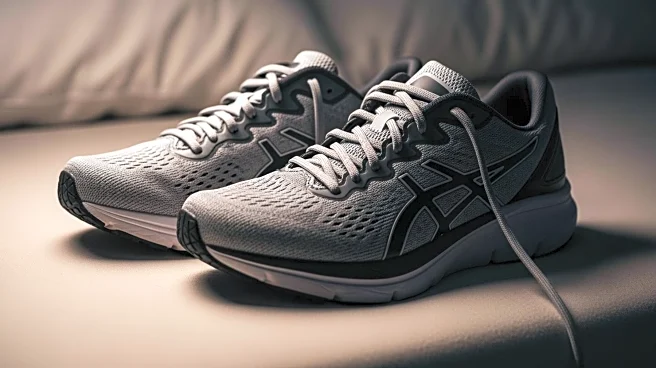What's Happening?
A recent study led by Professor Jan de Jonge from Eindhoven University of Technology highlights the significant impact of sleep deprivation on injury risk among recreational runners. The research surveyed 425 runners and found that those with poor sleep quality
or insufficient sleep were nearly twice as likely to sustain injuries compared to those with stable sleep patterns. The study emphasizes the importance of sleep as a critical component of injury prevention, noting that runners often prioritize mileage and nutrition over adequate rest. The findings suggest that sleep should be considered a performance priority, as it plays a vital role in physical recovery and injury prevention.
Why It's Important?
The study underscores the broader significance of sleep in sports performance and injury prevention. With recreational running being a popular activity, the findings have implications for millions of runners who may overlook the importance of sleep in their training regimen. Poor sleep can lead to increased vulnerability to injuries, which not only affects individual health but also has economic consequences due to medical expenses and lost productivity. By highlighting the role of sleep, the study encourages athletes, coaches, and health professionals to integrate sleep management into training programs, potentially reducing injury rates and enhancing overall performance.
What's Next?
The study calls for a reevaluation of training priorities, suggesting that sleep should be given equal importance alongside physical training and nutrition. Runners and coaches may need to adopt strategies to improve sleep quality, such as maintaining consistent sleep schedules, reducing screen time before bed, and creating a conducive sleep environment. As awareness grows, there may be increased emphasis on sleep education in sports training programs, potentially leading to improved athlete health and performance outcomes.
Beyond the Headlines
The research opens up discussions on the cultural attitudes towards sleep in sports, where the 'no pain, no gain' mentality often overshadows the need for rest. It challenges the notion that more training equates to better performance, advocating for a balanced approach that includes adequate recovery time. This shift in perspective could lead to long-term changes in how athletes approach training and recovery, fostering a healthier sports culture.















